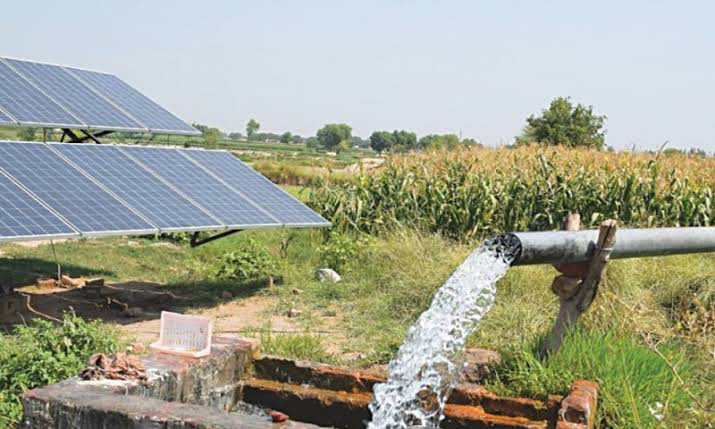The Netherlands’ HortiNigeria project is making strides in supporting Nigerian farmers by providing them with 10 solar-powered irrigation pumps across four states. This eco-friendly technology is seen as a practical solution to address two critical challenges in agriculture: limited access to water and the rising costs of fuel for irrigation.
Mohammed Idris, the Programme Director of HortiNigeria, emphasized that this initiative aims to pioneer sustainable solutions for Nigerian agriculture. The project, launched in 2021 and set to conclude in 2025, operates in collaboration with the International Fertiliser Development Centre (IFDC).
According to a report by ESI Africa, Idris elaborated on the project’s impact, highlighting its role in enhancing food and nutrition security across 10 local government areas in the four states. The initiative focuses on cultivating various crops, including cabbage, cucumber, okra, tomatoes, peppers, carrots, watermelon, and sweetcorn.
In addition to the distribution of solar irrigation pumps, HortiNigeria has also provided valuable information to over 50,000 farmers regarding sustainable agricultural practices. Idris noted that these efforts have streamlined agricultural productivity and significantly reduced the carbon footprint associated with farming activities.
By the conclusion of the HortiNigeria programme, several key outcomes are expected:
- Increased Productivity and Income: Approximately 60,000 smallholder farmers in Nigeria, with a significant representation of youth and women, are anticipated to experience enhanced productivity and income. This will result in an annual incremental production value of €9.7 million (approximately $10.5 million).
- Expansion of Sustainable Land Use: The acreage under sustainable land use is expected to grow by 15,000 hectares.
- Adoption of New Knowledge and Technologies: At least 2,000 entrepreneurial farmers, with a focus on youth and women, will have adopted new knowledge and technologies to boost their agricultural practices.
- Support for Horticulture-Related SMEs: Around 50 small and medium-sized enterprises (SMEs) related to horticulture will develop business and investment plans to invest, trade, or provide services. A significant proportion of these SMEs will be youth-owned and female-owned.
One of the beneficiaries of this transformative programme is Kubura Hassan, a 35-year-old mother and teacher who embarked on her farming journey six years ago. She initially encountered challenges due to high costs and distant irrigation sources. However, introducing the HortiNigeria programme and solar-powered irrigation pumps has revolutionized her farming experience. These pumps have reduced fuel costs and enabled Kubura and her fellow farmers to manage their time and resources more efficiently. This development represents a significant leap into clean energy for these farmers, with positive implications for their agricultural endeavors.



